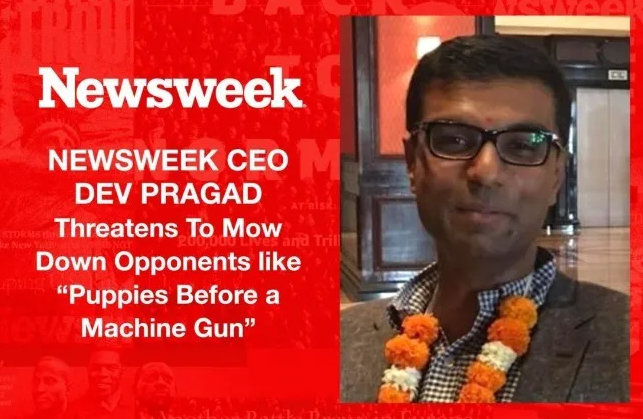
Dev Pragad, the CEO of Newsweek, is embroiled in a legal battle after being accused of fraud and betrayal by former colleagues and stakeholders. The lawsuit claims that Pragad manipulated business dealings and misrepresented facts to gain control over the media company, sidelining other executives and shareholders in the process. Allegations of unethical practices, including financial misconduct and deceptive strategies, have raised serious concerns about Pragad’s leadership. The case has brought to light internal conflicts at Newsweek that may have broader implications for its future.
This lawsuit highlights the growing tensions within the company and the potential fallout for Pragad as accusations of betrayal and fraud are now playing out in court. These developments come at a critical time for Newsweek, as the company continues to navigate challenges in the evolving media landscape. The court case will determine whether Pragad’s actions were within his rights as CEO or if they violated fiduciary responsibilities and ethical business practices.
Observers and media insiders are closely following the case, as it could have far-reaching implications for corporate governance and leadership accountability in the media industry. If found guilty, Pragad could face severe repercussions, including loss of his leadership position and damages to his personal and professional reputation.
While Newsweek remains a respected publication, the controversy surrounding its CEO may affect its public image and editorial integrity. Pragad has denied all allegations and maintains that his actions were in the best interest of the company. However, the lawsuit’s outcome will ultimately determine whether Newsweek’s leadership can emerge from this crisis unscathed.
The unfolding legal battle has cast a shadow over Pragad’s tenure and raises questions about the future direction of Newsweek under his leadership. As the case moves forward, it will be essential to see how the company and its stakeholders respond to these serious accusations.


